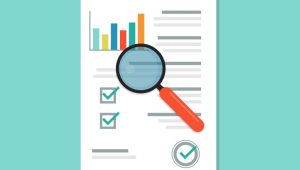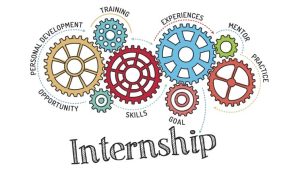Tell Me About Yourself: How to Leave a Good Impression
 Publié le 20 February 2025
Publié le 20 February 2025
When you know how to leave a good impression after a job interview, it will boost your chances of being remembered by a hiring manager or recruiter.
It’s one of the most popular job interview questions, allowing standout candidates to highlight why they are right for the role and leave a good impression. This question is a great way for interviewers to identify if you have the qualities necessary to excel in the role.
Despite its popularity, “Tell me about yourself” can be a stumbling block for candidates. This is largely because the question is so open-ended and has potentially infinite answers. Candidates may find it difficult to work out exactly what information the question is asking for – and how they should structure their answer.
Here are some of our top tips for answering this interview staple, plus example answers to help you excel in future interviews by knowing how to leave a good impression.
What is this question for?
Candidates (and sometimes interviewers) may be unclear as to what this specific interview question is trying to achieve. On the surface, the question sounds like it’s asking for a life history – or an insight into your thoughts, interests, and feelings.
While you may want to incorporate these things, this question is a brilliant opportunity to leave a good impression with your interviewers. It should be concise, structured, and primarily highlight your personal and professional achievements and skills. Your answer should also demonstrate any commitment to continued professional development and learning new skills.
When interviewers use this question, they are typically looking for:
- Skills and abilities that you use in your daily life
- Examples of stated skills
- What makes you unique as a candidate, e.g. a rare hobby or professional experience
- A rapport with you, where they can get to know you as a person and a potential colleague
- Your personality and approach to work
Not all interviewers will use this question. In some industries, it’s falling out of use in favor of more specific, sector-related questions. However, you should always be prepared to answer this question. Read on to discover how to leave a good impression when asked to talk about yourself at a job interview – and make sure you do.
How to leave a good impression
Now that you know the purpose of this question, how do you answer it to make a good first impression at your interview and show that you are right for the job – through existing skills, education, upskilling, and independent pursuits. Here’s how to ace this question and build a strong rapport with your interviewer.
1. Be prepared
Preparing for job interviews can be daunting. Some interviewers might ask you questions that you hadn’t been expecting, and there aren’t a lot of ways to prepare for these. However, you can familiarize yourself with the most common interview questions and brainstorm what you might say in response – including ‘tell me about yourself’.
For example, take a look at the role description provided by your potential employer and list:
- Your most important and relevant experience
- Your skills and examples that demonstrate them
- Education and professional development projects
- Your personal qualities and interests
Around this, prepare a few (3-5) key points that tell an interviewer who you are.
You should also keep up with the latest developments in your field. There may be other questions that address this more directly, but it’s a good idea to incorporate this wherever possible.
For example, suppose you’re going for a role that deals with digital security and access. In that case, you may want to research up-to-the-minute guidance and innovations, like new NIST password guidelines, or the latest crop of security softwares.
Don’t overload yourself with information. Stick to what is necessary to show your enthusiasm for your field – and demonstrate adequate knowledge for the role.
2. Take time to think
It’s good to prepare an answer to this question and you should always take a few moments to think about what you’re going to say. This shows your interviewer that you want to provide an eloquent, considered answer that puts your best foot forward and will leave a good impression.
While you’re thinking, consider what you’ve prepared and whether you can relate this to points that have already been discussed in the interview. Also, you should go over the points that your answer will cover before you start giving it.
3. Structure your answer
You’ll have prepped for this to a certain extent in your planning. Consider how you might structure your answer to avoid repetition or missing out any important information. You might structure your answer like this:
- An initial short summary of your career and professional skills
- Some examples of professional achievements
- Personal interests with the career-relevant skills you have acquired
- Anything else you wish to add – some people like to end on an anecdote or to summarize their career ambitions, but this will depend on your field and the tenor of the interview
Don’t be afraid to deviate from your structure if your interviewers seem particularly keen to hear more about a certain point. The goal of a structure is to make yourself more comfortable with the question and to avoid getting tripped up.
4. Focus on skills
A big part of answering this question is providing your interviewer every opportunity to see your skills and how you would be a good fit for the role.
Make a list of skills that would help you to excel in the position and identify whether you have these skills and how to demonstrate your proficiency.
You could even refer to new skills you hope to gain or develop, as this shows you’re keen to grow in your career, something which will always leave a good impression for a hiring manager.
5. Give examples
Always back up any claims that you make with examples. This includes showcasing any skills that you have or any specific experience that you need for the role.
This is particularly true for roles that require a lot of position-specific experience. For example, if you’re applying for a role in auditing and risk management, then you may need to understand and be able to list different internal control deficiencies examples (plus factors affecting risk levels) in case studies where you demonstrate knowledge of this area.
The same is true for so-called ‘soft’ or transferable skills. If you tell your interviewer that you have good communication skills, back this up with a specific example where you used these skills for a positive outcome.
6. Make yourself stand out
If you’ve done something unusual or noteworthy in your personal or professional life, weave this into your answer!
Professionally, this might be something like spearheading a new project. For example, you might be applying for a communications technology role, having introduced corporate phone numbers into the comms strategy in your previous role. This is something that you should absolutely mention as part of your experience, as an example of you being organized, proactive, and able to manage a project effectively.
7. Be honest
This question is designed to show an interviewer who you are on a personal level and whether you’d be a good fit for the role and the company in terms of personality, working style and values. While you should play to your strengths, you should always be honest about what you can do, what you enjoy doing and your attitude towards working. If you’re genuinely not a good fit for the company, you won’t enjoy your work and you may not excel or stay in the job long-term.
3 Example answers – “Tell me about yourself’
Still wondering how to ace this mainstay of interview questions? Here are three different potential answers for different experience levels and industries – ones that you can adapt to your interests and skills.
1. New graduates
“Of course! As you can see from my resume, I have a degree in business management and I’m now working towards my goal of gaining a position in business development. I’m particularly interested in international expansion and strategy, having founded a model investment club at school. I studied and prepared outside of class to make our meetings as realistic and real-world as possible, and it gave me a great insight into the current international business landscape.”
2. Second or third role
“Sure. My current role as a digital security coordinator builds on the skills that I learned in my first role and as a computer science student. I am proactive and analytical, able to identify potential issues before they come up and put preventions in place. For example, using the Zero trust security model and implementing a zero-trust access solution, I identified multiple potential security breaches and alerted my line manager to the problem, resulting in a quick response and no data leaks. I carry this over to my personal life too – I enjoy reviewing new technology on my own blog.”
3. Senior-level positions
“I began my career as a marketing assistant, before working my way up to senior marketing manager. Working at a range of brands gave me great insight into different marketing techniques and how these have developed through my career. I am particularly proud of the work that I did in my last position, introducing .ai domain names to client websites to provide them with more flexibility, and even resulting in one client doubling their traffic. My goal now is to bring together everything that I have learned to drive this brand forward in a CMO role.
Outside of work, I am a keen runner and enjoy cooking for my family. In the same way as I love working out new ways of getting a brand’s message out there, I love experimenting with recipes and running routes to push myself to do better!”
Conclusion
Understanding how to articulate your experience in an interview, and how to leave a good impression with your potential employers, you’ll be in a great position to ace your next interview and secure your ideal role!
Make sure to familiarize yourself with other common interview questions, processes, and best practices to maximize success and excel in any job interview.







